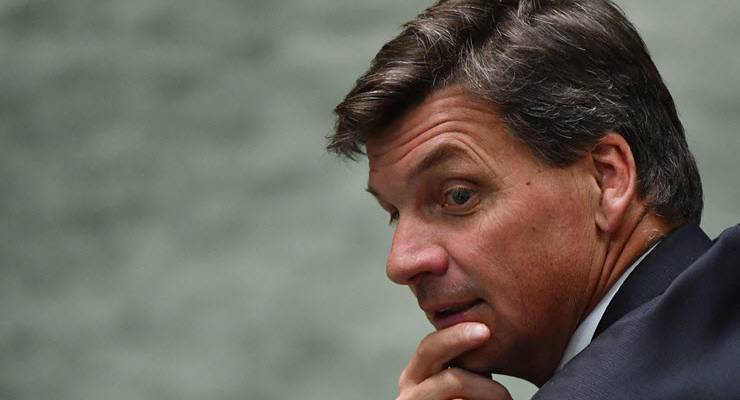
You’ve got to hand it to Angus Taylor. Even in the midst of a global pandemic, he’s managed to land a deal.
The energy minister wants the government to take advantage of the collapse in oil prices by spending $94 million buying stockpiles of crude oil in the United States.
The move, which the opposition has labelled as “bizarre”, has not come out of nowhere. Taylor has been negotiating with the Trump government as far back as last year to try to tap into US fuel reserves. And in March he flew to Washington to sign a memorandum of understanding promising to do just that.
But how does having oil on the other side of the world help Australia’s strategic position in the case of a major disruption? And who does the deal really benefit?
Strategically unhelpful
Australia does need to increase its strategic fuel reserves. It’s something that the International Energy Agency (IEA) has been calling on Australia to do for decades.
But Taylor’s plan doesn’t solve that problem, because the oil would be stored in the US.
“The logic of getting space in US petroleum reserves makes absolutely no sense to me,” Vlado Vivoda, a senior lecturer in strategic studies at Deakin University, told Crikey.
“We’re talking about US strategic fuel reserves located in Texas and Louisiana in the Gulf of Mexico. First of all it would take about a month to get to Australia. Then if you get it to Australia, it’s useless, because we have no refineries.”
Unrefined
As a primary commodity, crude oil is useful only if you’ve got somewhere to refine it. And Australia has all but eradicated its oil refinery industry.
Taylor says he is talking to industry about building storage capabilities here. But the reality is there is barely any industry left.
“They’ve let the entire refining industry close,” Tim Buckley, a director at the Institute of Energy Economics and Financial Analysis, told Crikey.
The other issue is that America is running out of storage capacity itself.
“It makes it even more random. If this is actually something the government is worried about, maybe it shouldn’t just do it as a random thought because the price is negative,” Buckley said.
Better options closer to home
Australia imports 90% of its liquid fuels but only has enough in storage to last 54 days — well below the 90 days it is obliged to stockpile under an agreement with the IEA.
Vivoda says it would make more sense from a strategic standpoint to do a deal with a closer ally like Singapore, where more than half of our refined fuel comes from.
“If anything our security measures should be focused on ensuring stability in Singapore and places along the supply chain,” he said.
US the winners?
The US, which has been brought to its knees by the slump in oil prices, might benefit from the arrangement. For Australia, the benefits are less clear.
“Buying oil at record lows is not a bad idea if the government is into punting. But I would be arguing they should be storing it in Australia,” Buckley said.








Australia storing oil in the USA, is akin to storing your money in someone else’s wallet.
Maybe you can trust them to give it back when times are good, but if you end up on struggle street and both NEED those emergency reserves… the yanks have form for looking out for number 1.
Mad.
Yes indeed. Leaving aside that it’s crude and NOT fuel, it’s like buying bullion and leaving it with the Mint, as an entry on a piece of paper.
Absolutely. And guess how the US treated their nearest neighbour and best best friend Canada in the current COVID crisis. …They stole PPE Canada purchased in the US and prevented it leaving the USA. Does Angus Taylor really think they’ll treat a tinpot little country like Australia, which Trump thinks shares a border with Germany, any better?
Poor old Anguish. Always a day late and just doesn’t add up.
Have a got this right ?
It stays in America.
It would take a month to get here.
We can’t use it anyway as we have nowhere to refine it.
On second thoughts there is only one question.
Who benefits?
Increasing our oil reserves was one of Shorten’s policies at the 2019 election. Perhaps Angus should ask Bill for some tips on where/how he intended reserving it.
Storing it in the US is hilarious. Standard Monty Python humour.
It’s best not to do business with rogue states. The US would steal our oil in a heartbeat if they wanted to. Just like the Feds are stealing the states’ PPE.